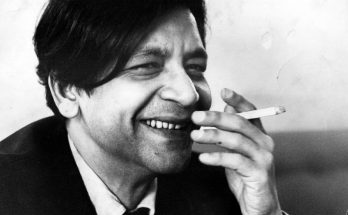 JAIPUR: Dovetailing the preciosities of the high-brow with the pugnacities of popular culture, the seventh edition of the Jaipur Literary Festival is in full flow in this famous touristy city that reflects India’s exuberant contradictions in a microcosm and dares us to think afresh new narratives of India, the world’s most populous democracy navigating its tryst with modernity and resurgence.
JAIPUR: Dovetailing the preciosities of the high-brow with the pugnacities of popular culture, the seventh edition of the Jaipur Literary Festival is in full flow in this famous touristy city that reflects India’s exuberant contradictions in a microcosm and dares us to think afresh new narratives of India, the world’s most populous democracy navigating its tryst with modernity and resurgence.
Fittingly, the self-styled world’s most egalitarian literary festival began January 17 with a wish-list by Nobel Laureate Amartya Sen that envisages India having a right wing party that is secular and a born-again left party that can dedicate itself to fighting imperialism and eliminating the curse of poverty. Only Sen, the archetypal argumentative Indian intellectual, could have come out with such audacious formulations that seek to liberate India from the traditional dogmas of the left and right and kindle a new politics of hope and renascence that the country sorely needs.
In his keynote address entitled “A Wish a Day for a Week,” Harvard economist Sen also made an impassioned pitch for restoring the study of humanities at the centre of cumulative efforts towards national renascence. “Firstly, I wish for a greater role for humanities in education and daily life,” he said. “We seriously need to cultivate classical education like the arts, language and culture in our country. There are many students who go for science and technology, but how many are actually looking at humanities as a subject,” he asked. “A novel can point to a truth without pretending to capture it in some exact way,” the economist-philosopher underlined. In the midst of anarchic proliferation of social media, Sen asserted the primacy of old-fashioned books. “Social media can help, but you must read more books!”
 Unveiling contours of a reawakened liberal humanism, Sen pitched for a more constructive and creative role for the media that liberates this enterprise from the tyranny of commercial imperatives. “I want the media to be more responsive to the needs of the poor people, rather than to commercial interests.”
Unveiling contours of a reawakened liberal humanism, Sen pitched for a more constructive and creative role for the media that liberates this enterprise from the tyranny of commercial imperatives. “I want the media to be more responsive to the needs of the poor people, rather than to commercial interests.”
Evoking the zeitgeist that tends to exalt the middling and the banal, Sen, who has authored An Uncertain Glory with Jean Dreze, conjured up an imagined conversation with what he called “the goddess of medium things,” and unveiled his seven wishes for India.
Shunning comforts of dry theorizing, Sen chose to engage with the cuts and thrusts of politics, as they are choreographed and enacted in reality. In a separate session on “Choices and Freedoms,” Sen underscored the sterility of India’s self-obsessed political parties. To make his point, he cited Karl Marx, who decried the “society of free competition” in which isolated individuals appear detached from “natural bonds.”
Above all, Amartya Sen struck a cautionary note about the inflationary and potentially delusive politics of the so-called “aam admi.” Seeking to demystifying the common man, Sen said while he was “inclined to cheer” the Aam Admi Party’s (or Common Man Party) success in recent elections in Delhi, he provoked the audience to think afresh their nations of the common man. “Who are the ‘aam aadmi’?” Sen asked. “Are they people who want cheaper cooking gas and diesel and electricity? Or are they people who have no electricity connections, no water connections?”
With barely months to go before the world’s greatest carnival of democracy kicks in with around 700 million adult Indians readying to cast their vote, it’s time to emancipate Indian politics from the stale dogmas of the left and right and craft anew a new narrative of national redemption that not only speaks in the name of aam admi, but acts for their genuine uplift.
Author Profile

- Manish Chand is Founder-CEO and Editor-in-Chief of India Writes Network (www.indiawrites.org) and India and World, a pioneering magazine focused on international affairs. He is CEO/Director of TGII Media Private Limited, an India-based media, publishing, research and consultancy company.
Latest entries
 India and the WorldMarch 3, 2024India-Denmark Connect: Red carpet for Indians to Red Sea cooperation
India and the WorldMarch 3, 2024India-Denmark Connect: Red carpet for Indians to Red Sea cooperation India and the WorldFebruary 17, 2024Munich Security Conference: Jaishankar, Blinken focus on Red Sea, Middle East
India and the WorldFebruary 17, 2024Munich Security Conference: Jaishankar, Blinken focus on Red Sea, Middle East India and the WorldFebruary 14, 2024Munich Security Conference report: Migration, war top security threats
India and the WorldFebruary 14, 2024Munich Security Conference report: Migration, war top security threats India and the WorldJanuary 23, 2024With “Ram to Rashtra” mantra, Modi consecrates Ram temple for national renewal
India and the WorldJanuary 23, 2024With “Ram to Rashtra” mantra, Modi consecrates Ram temple for national renewal







